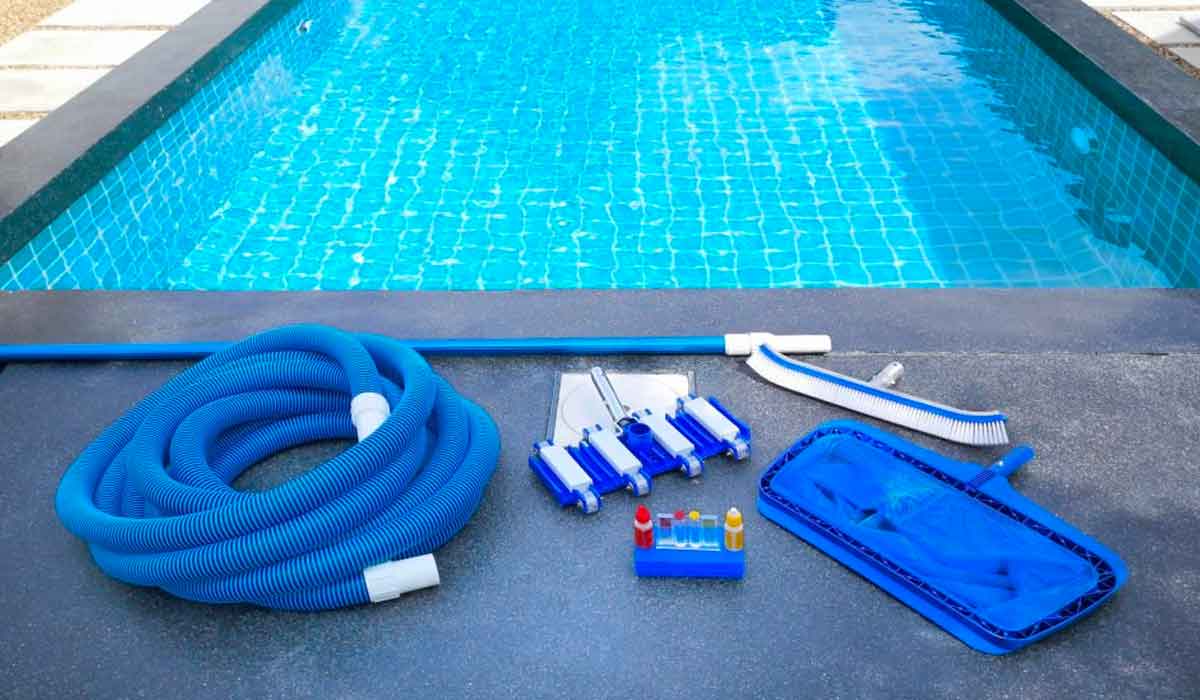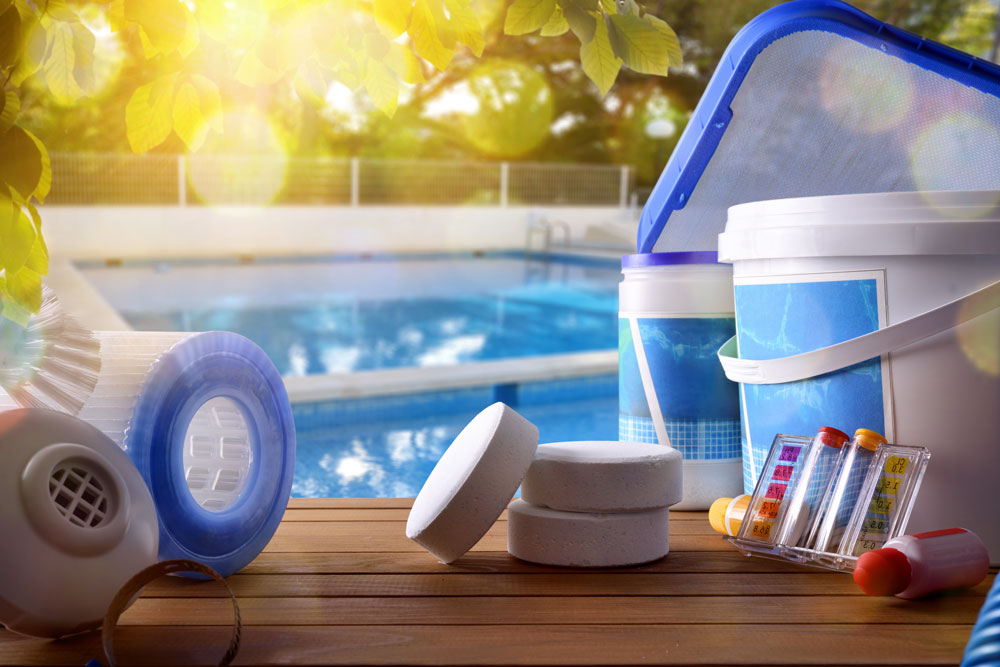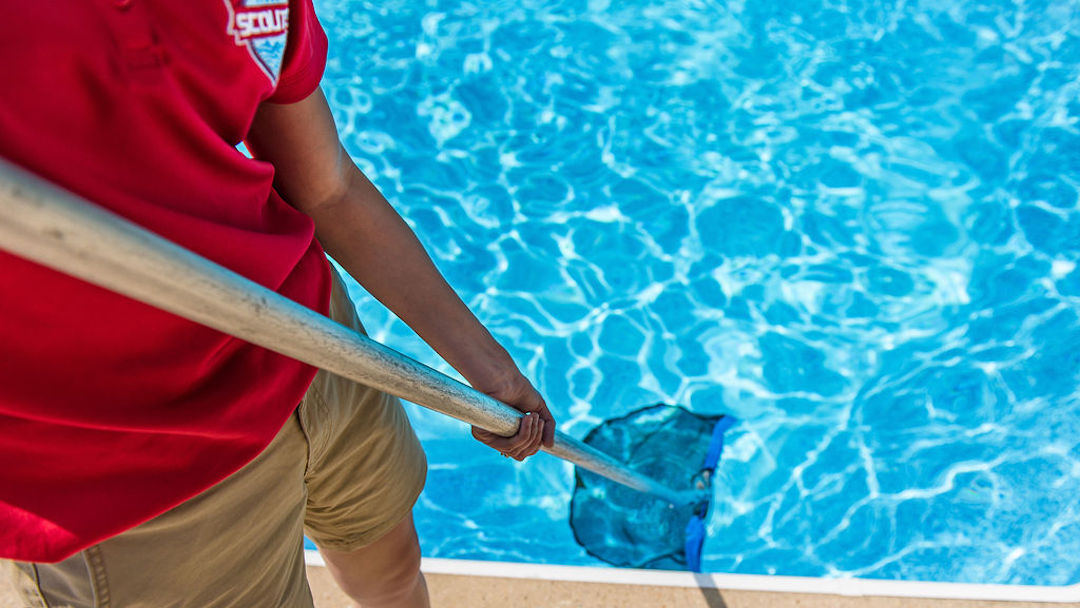Important Pool Upkeep Tips to Maintain Your Water Sparkling Clean
Maintaining a beautiful pool needs a systematic strategy to water care and sanitation, which inevitably contributes to both the aesthetic allure and durability of the swimming pool itself. Sticking to these basic strategies not only improves the clearness of your pool water however likewise safeguards against prospective concerns that could escalate into costly repairs.
Examination Water Chemistry Consistently
To guarantee a secure and satisfying swimming experience, on a regular basis testing water chemistry is essential. Proper water equilibrium not only enhances swimmer comfort yet also shields pool tools and surfaces. The key chemical specifications to keep track of consist of pH, chlorine levels, alkalinity, and calcium solidity.
pH levels must be kept in between 7.2 and 7.8, as this range lessens skin and eye irritability while enhancing chlorine effectiveness. Chlorine degrees ought to preferably be between 1-3 parts per million (ppm) to give appropriate cleanliness without triggering undesirable odors or inflammation. Complete alkalinity, which works as a buffer for pH, must be maintained between 80-120 ppm to stabilize water chemistry and avoid fluctuations.

Maintain the Pool Filter Clean
Preserving correct water chemistry is only part of reliable pool treatment; keeping the swimming pool filter tidy is similarly essential for optimal efficiency. The swimming pool filter plays a vital duty in eliminating particles, dirt, and pollutants from the water, making sure a risk-free and delightful swimming setting. Gradually, filters can end up being blocked with fragments, which can dramatically reduce their performance.

In addition, check the stress scale on your filter system. A pressure increase of 8-10 psi over the normal operating array usually suggests that it's time for cleansing. Disregarding to preserve a clean filter can lead to bad water flow, unbalanced chemistry, and enhanced strain on the swimming pool pump, ultimately leading to greater power prices and prospective equipment failing.
Skim and Brush Regularly

Brushing the swimming pool wall surfaces and flooring is just as important. Make use of a swimming pool brush with a suitable bristle kind for your pool surface area-- nylon brushes for vinyl or fiberglass pools, and stainless steel for plaster or ceramic tile surfaces.
Maintain Proper Water Levels
Keeping the pool surface area tidy via constant skimming and cleaning significantly contributes to overall water high quality, yet preserving proper water levels is equally vital for optimal swimming pool wellness. The water degree in your swimming pool should ideally go to the navel of the skimmer opening. This ensures that your skimmer can properly remove debris and drifting impurities, stopping accumulation that can jeopardize water clarity and top quality.
Reduced water degrees can result in pump damage, as the pump may run completely dry, taking the chance of costly repair work. On the other hand, exceedingly high water levels can trigger water to overflow, diluting chemical equilibriums and developing an unpleasant mess. Frequently examine your swimming pool's water degree, particularly after hefty rains or substantial dissipation because of heat.
Additionally, take into consideration factors such as swimming pool usage, ecological conditions, and the kind of water features in your swimming pool, as these can influence water levels. Installing a pool cover can assist decrease dissipation and maintain a steady level if you locate on your own continually battling ever-changing water levels. Ultimately, regular tracking and change of water degrees will certainly aid make sure a healthy and balanced swimming environment and prolong the life of your pool devices.
Schedule Seasonal Upkeep
Understanding the value of seasonal upkeep is crucial for ensuring your swimming pool continues to be in optimal problem year-round. Each season brings distinct difficulties and problems that can affect the water quality and architectural integrity of your swimming pool. By organizing maintenance tasks on a regular basis, you can prevent minor issues from intensifying into pricey repair work.
In the spring, concentrate on opening the swimming pool, inspecting the purification system, and stabilizing the chemical levels. This establishes a solid structure for the swimming period - Pool Inspection. As summertime techniques, routine maintenance such as skimming particles, brushing surfaces, and tracking water levels comes to be important to maintain sanitation and safety and security
As autumn arrives, plan for cooler temperatures by eliminating fallen leaves and debris, and take into consideration winterizing your pool if it won't be utilized during the colder months. This consists of decreasing water levels and including winterizing chemicals to secure versus cold.
Throughout the wintertime, regular checks on the pool cover and devices are very important to make certain everything remains intact. By adhering to a seasonal upkeep timetable, you can expand the life of your pool and maintain it inviting and secure for usage year-round.
Final Thought
Normal swimming pool upkeep is vital for guaranteeing water quality and safety. By consistently examining water chemistry, keeping the swimming pool filter in optimal problem, and executing routine skimming and cleaning, swimming pool proprietors can properly stop algae growth and various other problems.
By preserving appropriate water chemistry, pool owners can guarantee a secure environment, extend equipment life, and improve overall enjoyment of their swimming pool.
Preserving appropriate water chemistry is just component of effective swimming pool care; keeping the swimming pool filter clean is equally important for optimal efficiency. Use a swimming pool brush with an ideal bristle kind for your pool surface area-- nylon brushes for plastic or fiberglass swimming pools, and stainless steel for plaster or floor tile surfaces.
Keeping the swimming pool surface area tidy via frequent skimming and cleaning substantially adds to total water high quality, yet preserving proper water degrees is just as crucial for ideal pool health.In addition, think about variables such as swimming pool usage, ecological conditions, and the kind of water features in your swimming pool, as these can influence water levels.